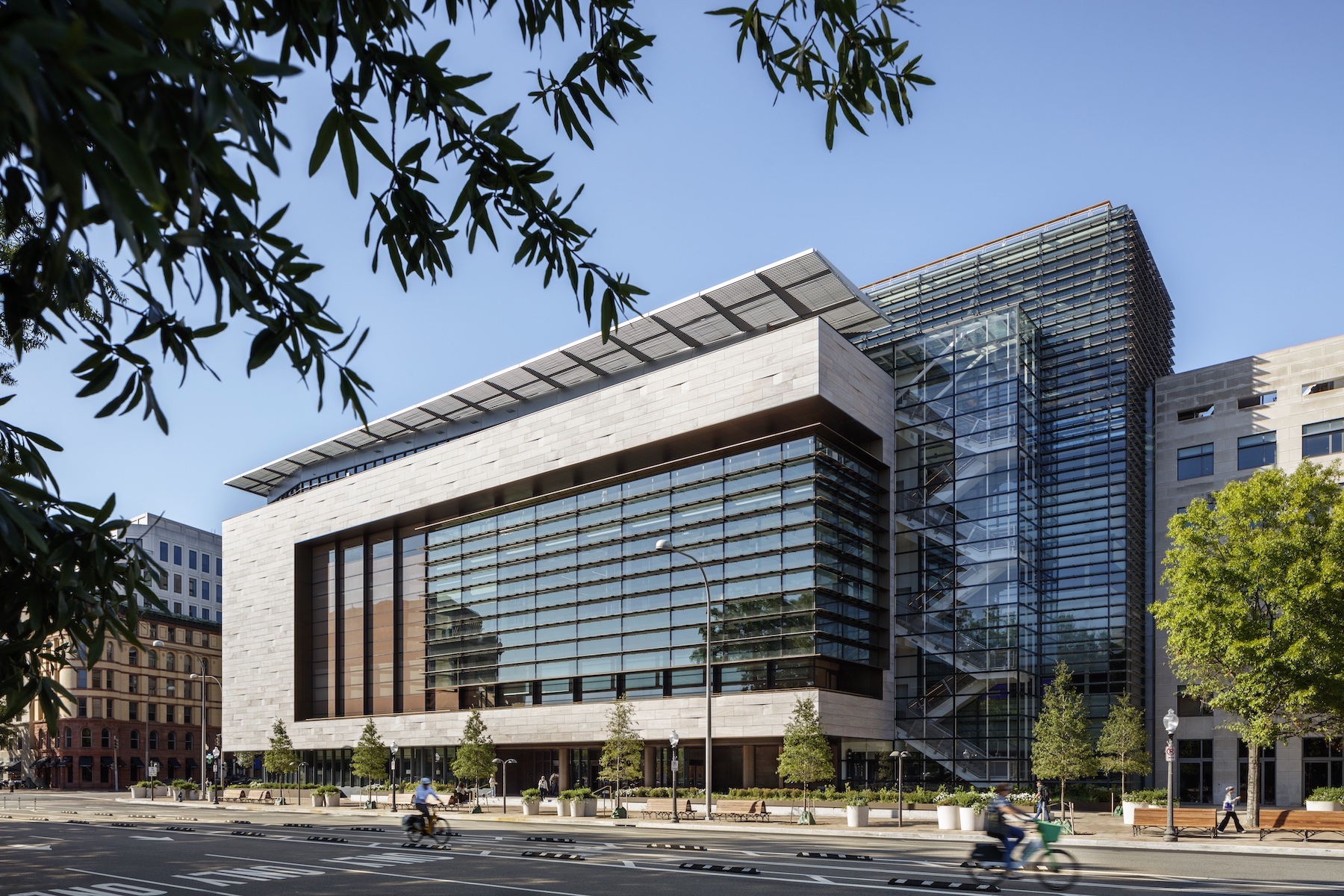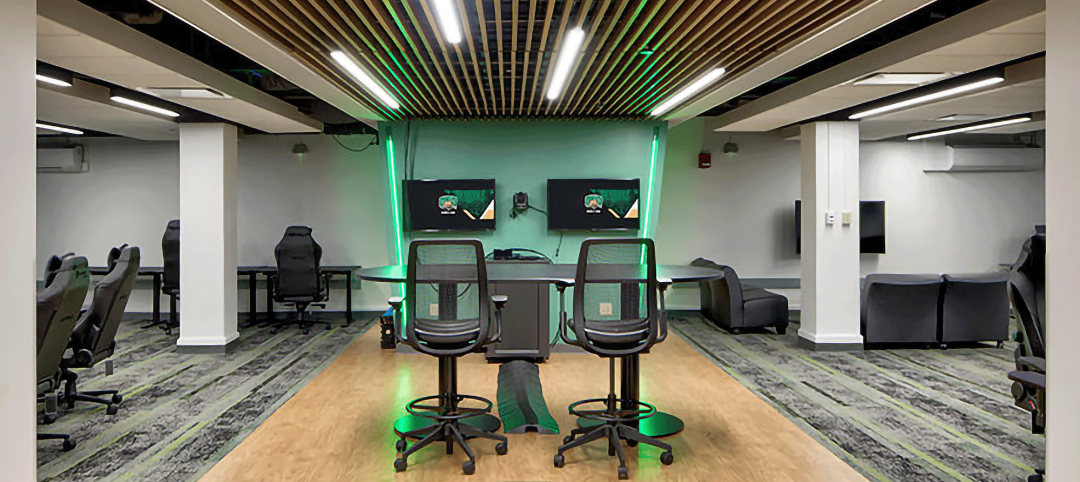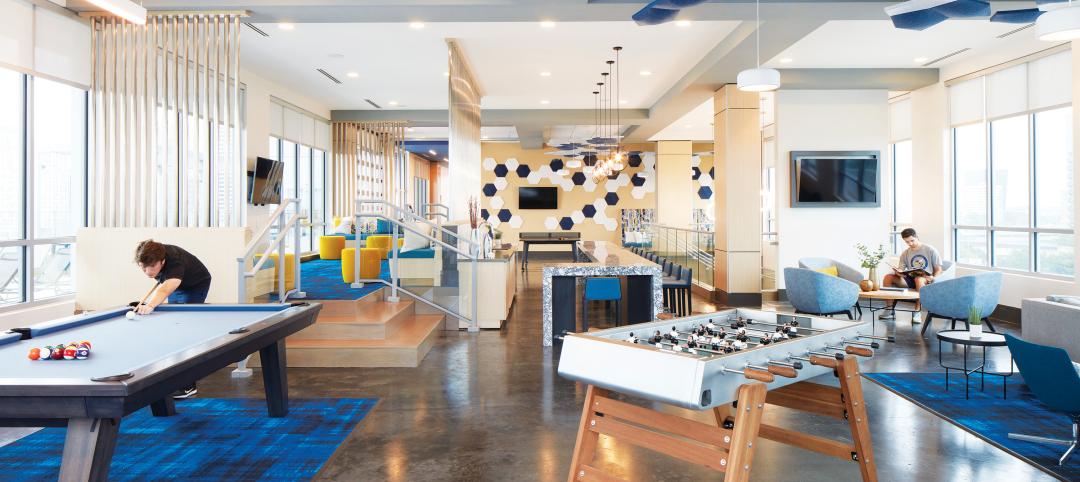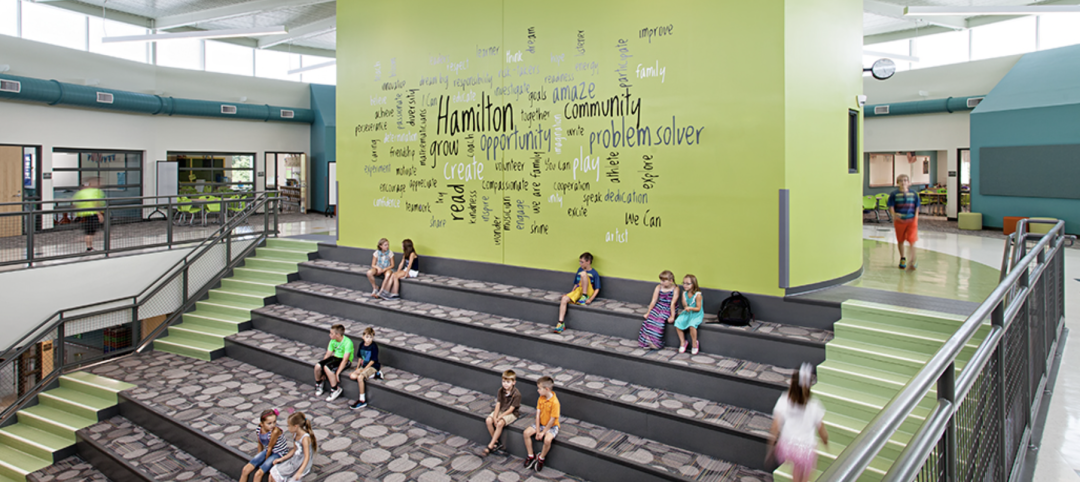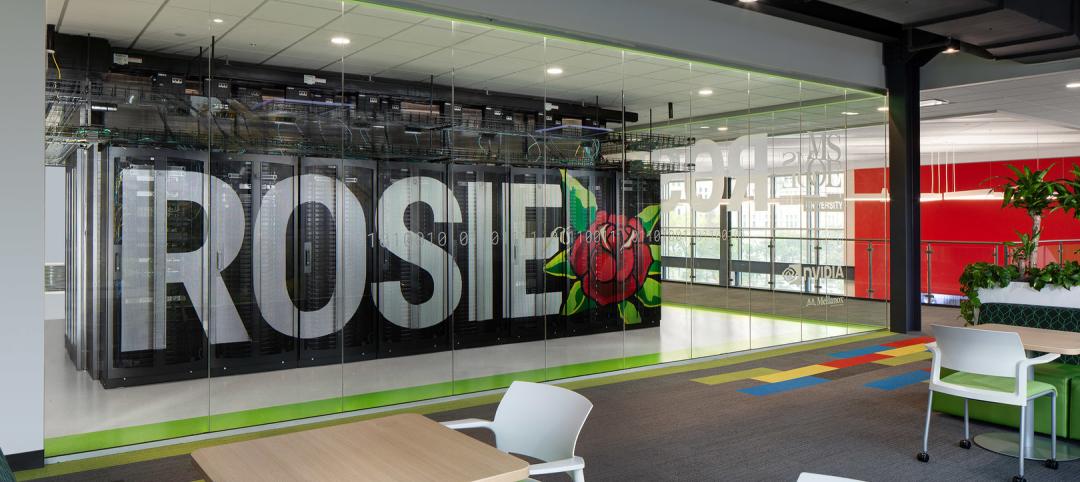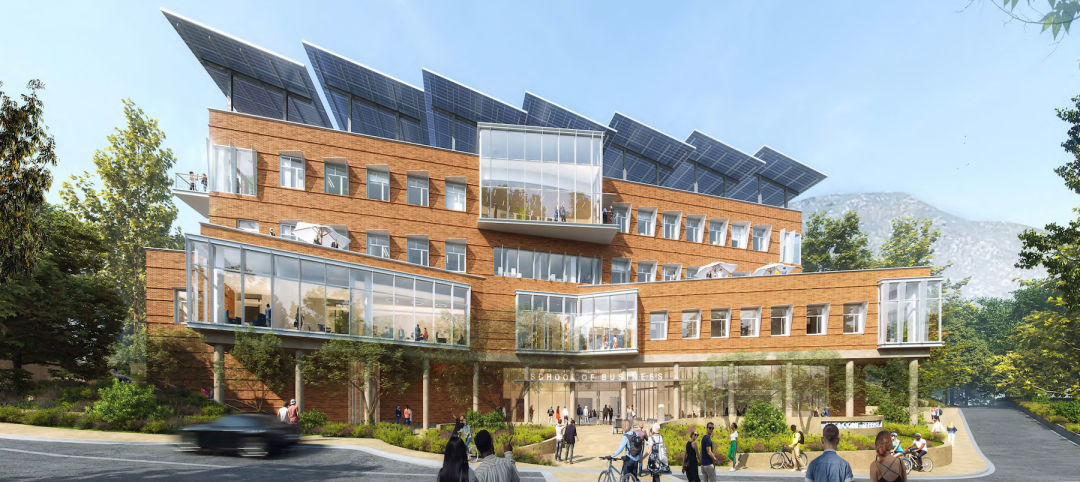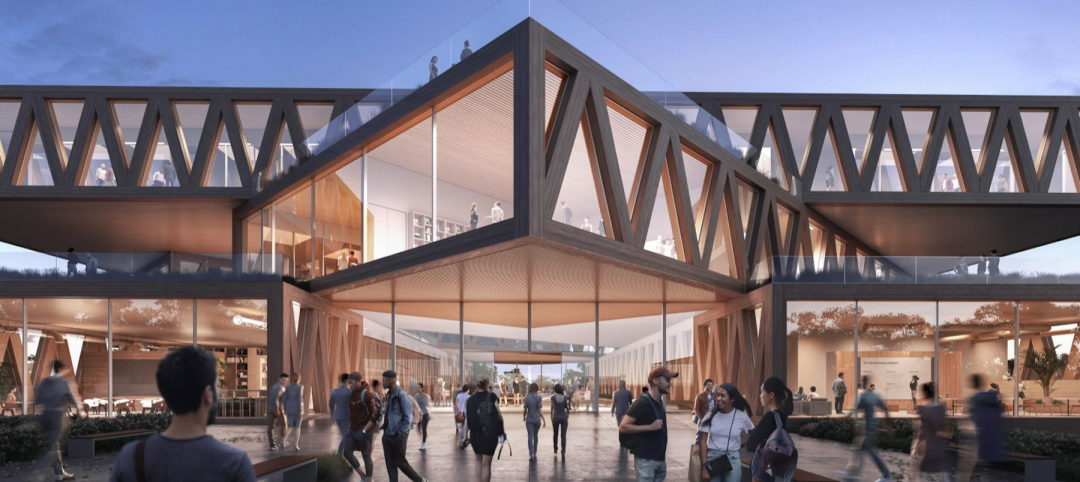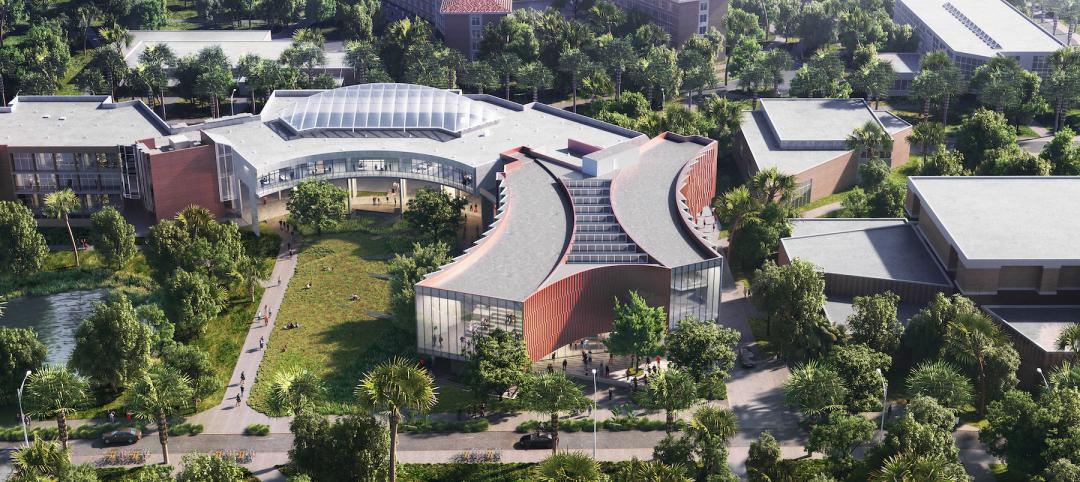In June 2020, Johns Hopkins University completed its $372.5 million acquisition of the Newseum in Washington, D.C., which had closed the year before. A $275 million renovation of that building resulted in the Johns Hopkins University Bloomberg Center, a higher education facility that brings together many of the university’s divisions within a building redesigned as a vertical campus for transparency and sustainability.
The 435,000-ft facility opened last August at 555 Pennsylvania Avenue at the heart of the nation’s capital. It is anchored by Johns Hopkins’ School of Advanced International Studies, its Carey Business School, its Krieger School of Arts and Sciences, the Peabody Institute, and the newly launched School of Government and Policy. The Center’s mission, stated Johns Hopkins, is to “connect the worlds of research and policy, educate future leaders and innovators, convene a range of viewpoints to foster discovery and dialogue, and bring a fresh infusion of artistic expression.”
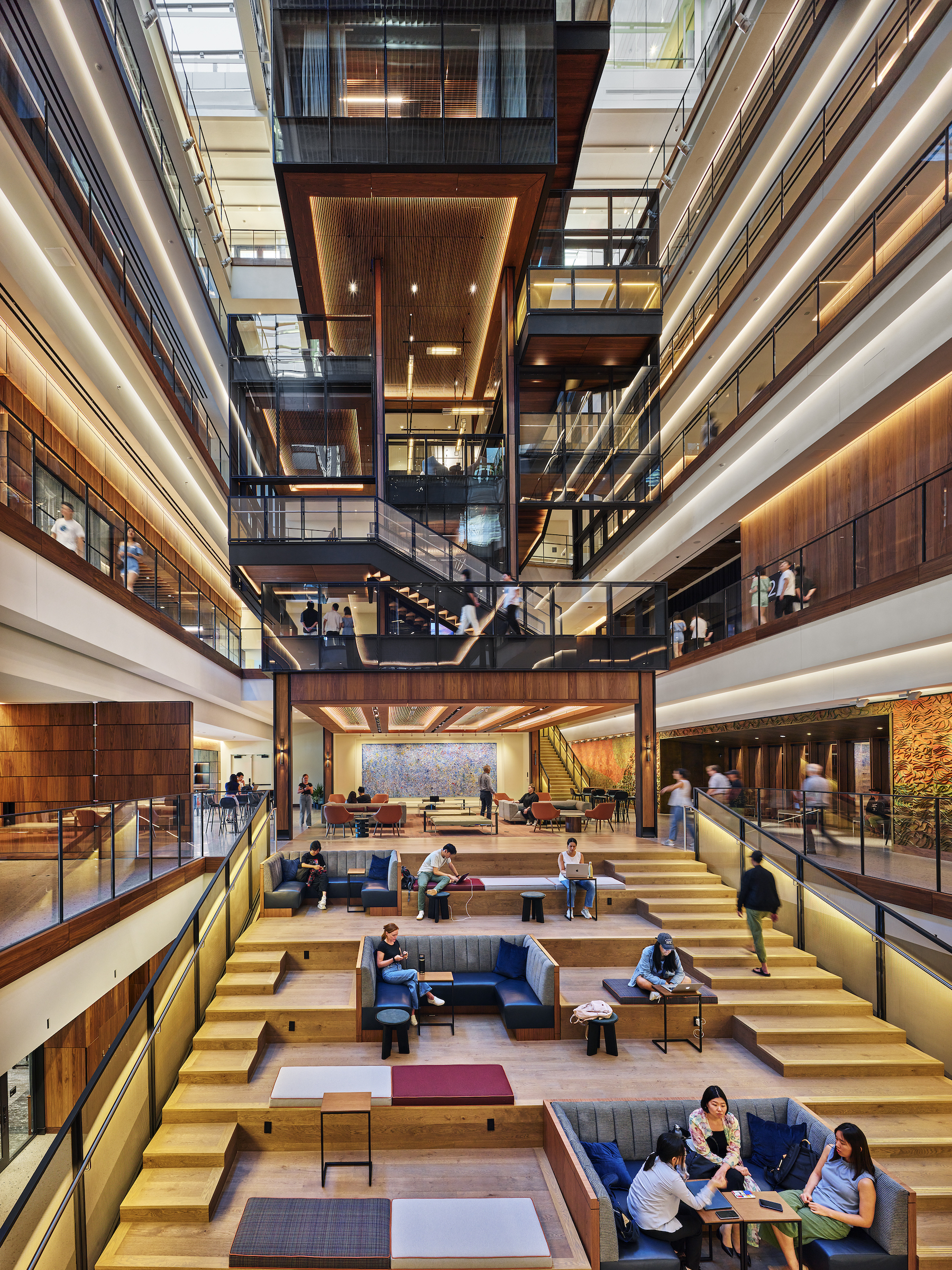
More than 3,000 students, faculty, researchers, and staff come through this 10-story building daily. The Center allocates 300,000 sf of its interior space to learning, with 38 high-tech classrooms of varying capacities. On the east side of the building’s seven-story-tall interior atrium, a 20x27-ft “floating” glass classroom hangs from a pair of bridge girders. On the west side of the atrium rises a 70-ft treehouse-like stacked assemblage of classrooms and open lounges.
The atrium is anchored by a sloped seating area called The Beach, a nod to the grassy space at Johns Hopkins’ Homewood campus in Baltimore.
Ennead gets another shot at an old project
Inside the Center as well are the Irene and Richard Frary Library on its second floor, an event space called The Link on its fourth floor, a 3,350-sf multimedia suite, a fitness and wellness center, a lounge with 435 seats, and a 375-seat theater with a 640-sf stage and 7,000 sf of backstage support. Space has been earmarked for a future restaurant and café.
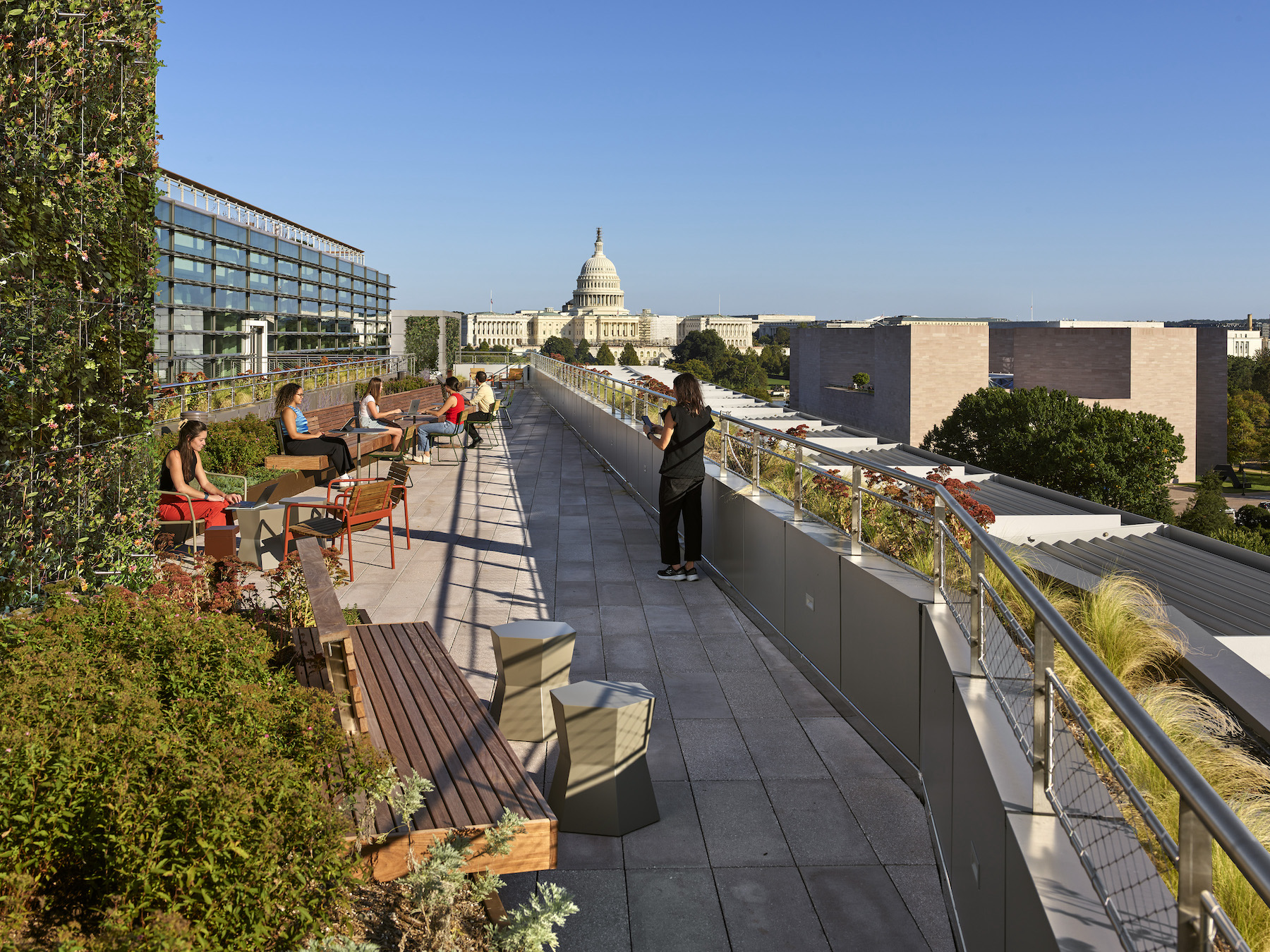
The building’s exterior is encased in an enlarged glass façade and a 50-ft curtainwall that faces Pennsylvania Avenue; pink marble cladding, and 16,888 sf of roof terraces. “As architects, it is a rare opportunity to revisit an earlier design and reimagine it for an entirely new purpose,” said Richard Olcott, FAIA FAAR, Design Partner at Ennead Architects, this Center’s exterior architect, and the original architect of the Newseum.
This project’s building team also included SmithGroup (AOR, lighting design, fire protection, life safety engineering), Rockwell Group (interior architect), Clark Construction (GC), Wiles Mensch (CE), LERA Consulting Structural Engineers (SE), WSP (MEP engineer, fire protection, life safety engineer), Oehme, van Sweden (landscape architect), Babich Acoustics (acoustics), and BrightTree Studios (A/V). MGAC provided project and cost management support.
A reduced carbon footprint
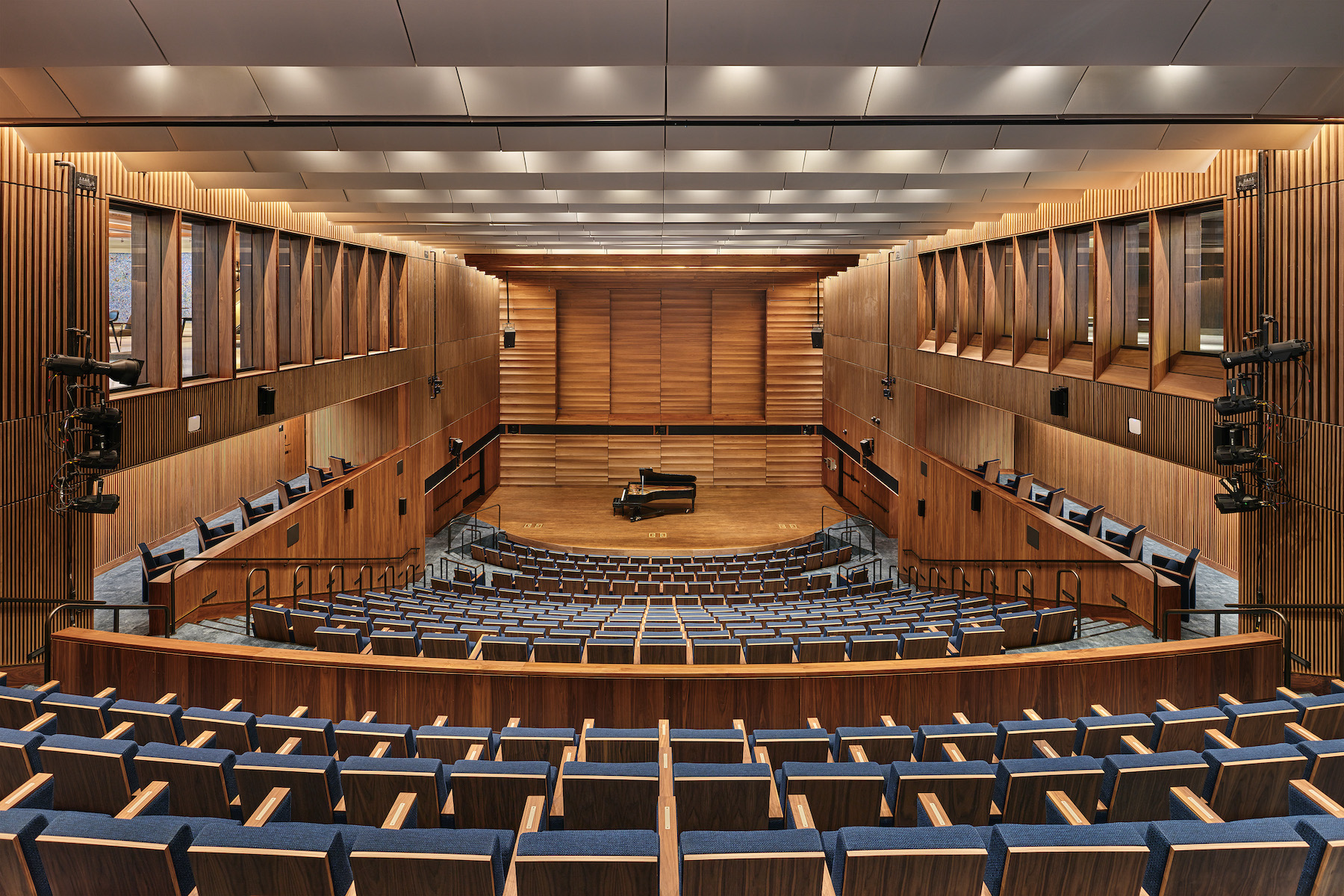
Concerning the atrium, Rockwell Group identifies two key insertions: the “Room Stair” that wraps around the building’s glass rooms and lounges; and the “Room Bridge” that houses classrooms and lounge spaces, and bridges both sides of the building.
The building team eliminated 77.8 tons of carbon dioxide from the construction process by using CarbonCure concrete. The team also recycled or diverted from landfills 96.6 percent of the project’s construction waste that, according to SmithGroup, included demolishing 50,000 sf of interior floorplates to make way for 90,000-sf floorplates, and removing the Newseum’s marble exterior panels.
Related Stories
Esports Arenas | Dec 19, 2022
Ohio University’s OHIO Esports Arena redefines video gaming
If a college student enjoys film studies, there is probably a place on campus where they can join other film buffs. But where can students who like video games go?
Sponsored | Resiliency | Dec 14, 2022
Flood protection: What building owners need to know to protect their properties
This course from Walter P Moore examines numerous flood protection approaches and building owner needs before delving into the flood protection process. Determining the flood resilience of a property can provide a good understanding of risk associated costs.
Student Housing | Dec 7, 2022
9 exemplary student housing projects in 2022
Production continued apace this year and last, as colleges and universities, for-profit developers, and their AEC teams scrambled to get college residences open before the start of classes.
University Buildings | Dec 5, 2022
Florida Polytechnic University unveils its Applied Research Center, furthering its mission to provide STEM education
In Lakeland, Fla., located between Orlando and Tampa, Florida Polytechnic University unveiled its new Applied Research Center (ARC). Designed by HOK and built by Skanska, the 90,000-sf academic building houses research and teaching laboratories, student design spaces, conference rooms, and faculty offices—furthering the school’s science, technology, engineering, and mathematics (STEM) mission.
Education Facilities | Nov 30, 2022
10 ways to achieve therapeutic learning environments
Today’s school should be much more than a place to learn—it should be a nurturing setting that celebrates achievements and responds to the challenges of many different users.
Data Centers | Nov 28, 2022
Data centers are a hot market—don't waste the heat!
SmithGroup's Brian Rener shares a few ways to integrate data centers in mixed-use sites, utilizing waste heat to optimize the energy demands of the buildings.
University Buildings | Nov 13, 2022
University of Washington opens mass timber business school building
Founders Hall at the University of Washington Foster School of Business, the first mass timber building at Seattle campus of Univ. of Washington, was recently completed. The 84,800-sf building creates a new hub for community, entrepreneurship, and innovation, according the project’s design architect LMN Architects.
University Buildings | Nov 2, 2022
New Univ. of Calif. Riverside business school building will support hybrid learning
A design-build partnership of Moore Ruble Yudell and McCarthy Building Companies will collaborate on a new business school building at the University of California at Riverside.
School Construction | Oct 31, 2022
Claremont McKenna College science center will foster integrated disciplinary research
The design of the Robert Day Sciences Center at Claremont McKenna College will support “a powerful, multi-disciplinary, computational approach to the grand socio-scientific challenges and opportunities of our time—gene, brain, and climate,” says Hiram E. Chodosh, college president.
University Buildings | Oct 27, 2022
The Collaboratory Building will expand the University of Florida’s School of Design, Construction, and Planning
Design firm Brooks + Scarpa recently broke ground on a new addition to the University of Florida’s School of Design, Construction, and Planning (DCP).


